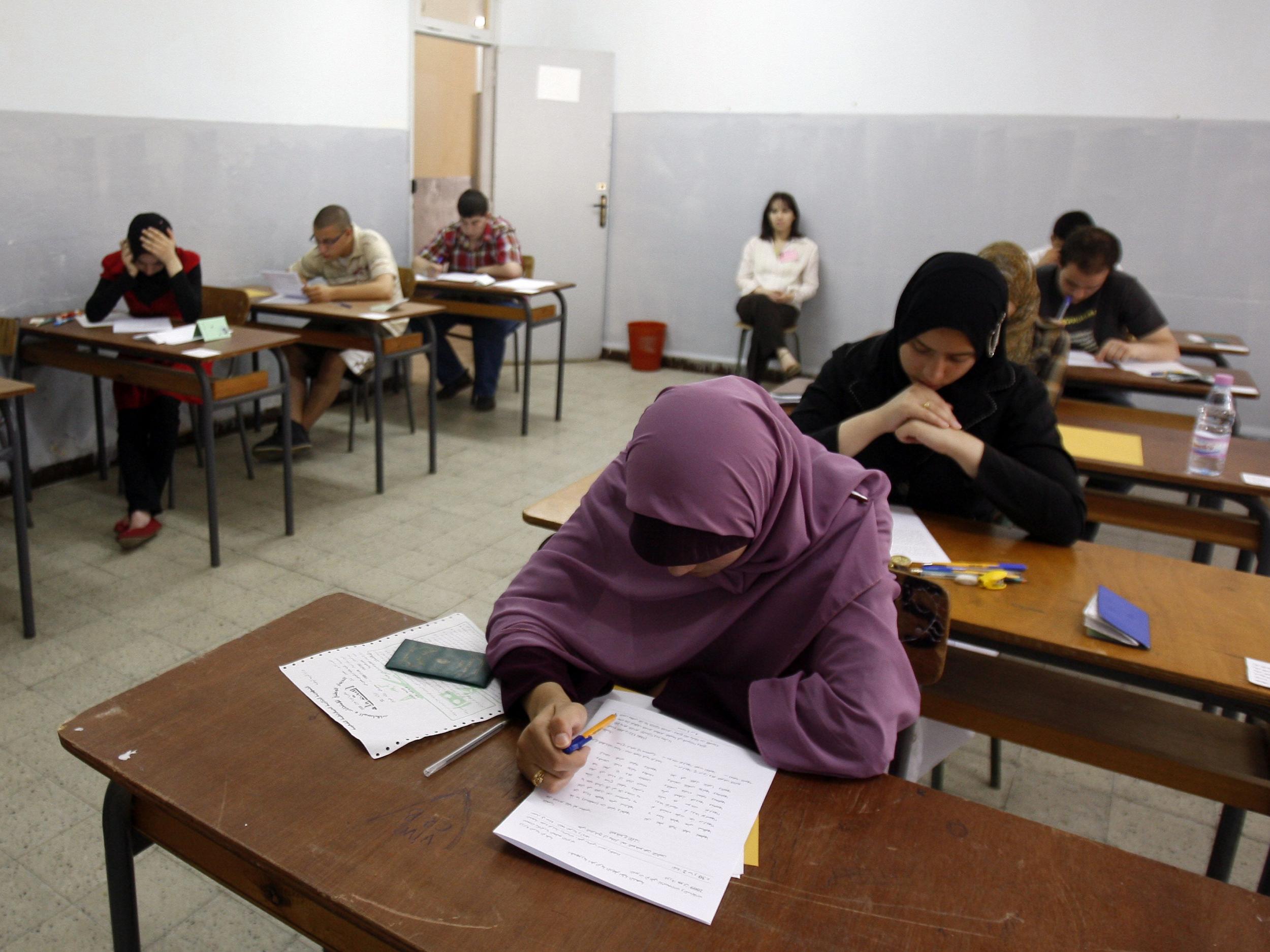Algeria and Iraq shut down internet nationwide to stop students cheating in exams
'Shutting down digital communication often disproportionately harms marginalised and vulnerable groups, cripples the local economy, and creates cascades of chaos'

Your support helps us to tell the story
From reproductive rights to climate change to Big Tech, The Independent is on the ground when the story is developing. Whether it's investigating the financials of Elon Musk's pro-Trump PAC or producing our latest documentary, 'The A Word', which shines a light on the American women fighting for reproductive rights, we know how important it is to parse out the facts from the messaging.
At such a critical moment in US history, we need reporters on the ground. Your donation allows us to keep sending journalists to speak to both sides of the story.
The Independent is trusted by Americans across the entire political spectrum. And unlike many other quality news outlets, we choose not to lock Americans out of our reporting and analysis with paywalls. We believe quality journalism should be available to everyone, paid for by those who can afford it.
Your support makes all the difference.The Algerian and Iraqi governments are taking the “extreme measure” of temporarily suspending internet connections across both countries to stop school pupils cheating during exams.
Education minister Nouria Benghabrit told Algerian national radio that the internet would be blocked for two hours of each morning as students sit baccalaureate tests nationwide between 20 and 25 June.
Access to Facebook will be cut off completely during the whole period.
It comes after papers for the mandatory high school exams were leaked and shared widely on social media in the last two years.
“We have put in place a technical device that consists of suspending the internet connection and block social networks from Wednesday to prevent the leaking of baccalaureate subjects,” Ms Benghabrit said.
Mobile phone jammers, metal detectors and surveillance cameras have also been installed at 2,000 exam centres across the country.
State-owned telecommunications provider Algeria Telecom said the shutdown was being enforced “in compliance with instructions from the government, aimed at ensuring the high school diploma tests run smoothly”.
Ms Benghabrit told Algerian newspaper Annahar she was “not comfortable” with the decision but “we should not passively stand in front of such a possible leak”.
Iraq is implementing similar restrictions for the third consecutive year as high school students sit final-year tests this month.
The internet will be blocked across the country for two hours each morning during the two-week exam period.
A number of other countries, including India and Ethiopia, have previously cut internet access in bid to combat cheating.
Access Now, a human rights group which campaigns for an open and free internet, has raised concerns about the shutdowns, which it warned could mean “sometimes mean the difference between life and death”.
“They impact many different groups, such as students, teachers, parents, proctors, internet service providers, telecommunications companies, internet companies, testing services, and education agencies, and it’s clear that most of them would prefer an alternative to an internet blackout,” the group said.
There were more than 100 government-mandated instances of deliberate internet disruption last year, according to a recent report the Global Network Initiative, which champions digital rights and opposes online censorship.
The report’s author, Jan Rydzak, said last month: “Shutting down digital communication often disproportionately harms marginalised and vulnerable groups, cripples the local economy, and creates cascades of chaos with consequences we cannot fully fathom.”
Join our commenting forum
Join thought-provoking conversations, follow other Independent readers and see their replies
Comments